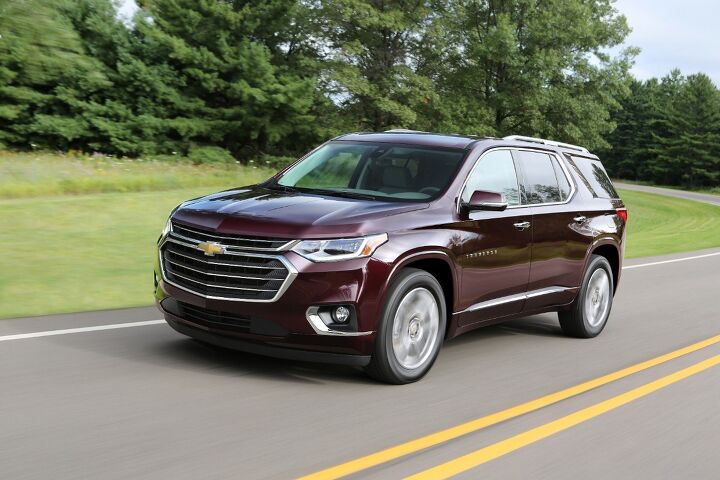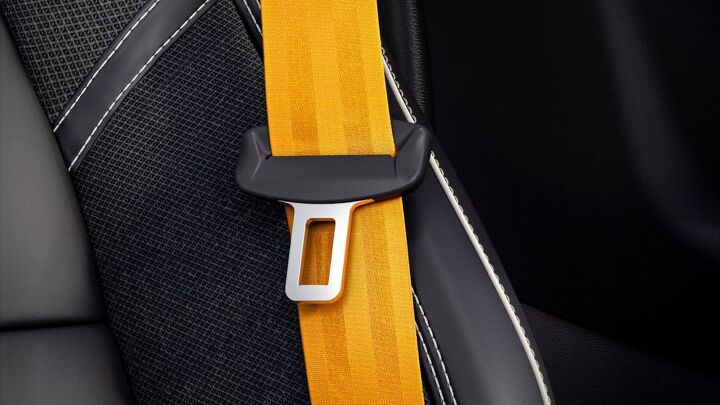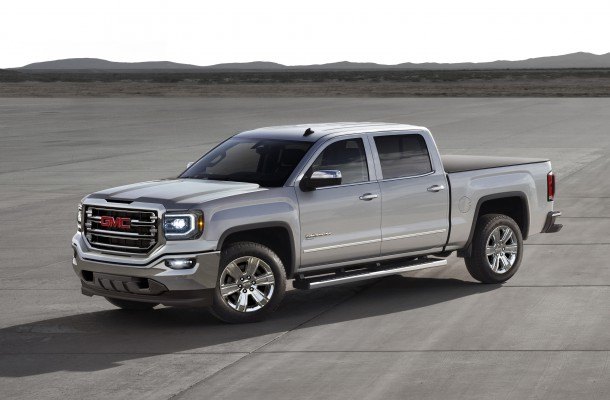#NHTSA
Tapping Into Technology: Congress Considers Terrifying New Solutions for Drunk Driving
U.S. Senators Tom Udall (D-NM) and Rick Scott (R-FL) plan to introduce new legislation forcing automakers to install hardware that would effectively stop intoxicated individuals from operating motor vehicles by the middle of the next decade. The stated goal is to prevent the thousands of fatal crashes stemming from drunk driving each year. It’s similar to a bill introduced by House Representative Debbie Dingell (D-MI), which aims to have advanced DUI prevention devices in all cars by 2024.
While it’s difficult to get bent out of shape over any system that curtails drunk driving, we’ve managed to find a way. As usual, it plays into your author’s ever-growing phobia of surveillance-focused technologies.
NHTSA Seeks Public Input Regarding Cameras Replacing Side Mirrors
While side-mounted camera systems have been approved as an acceptable replacement for mirrors by much of the developed world, the United States has yet to approve their installation. But it’s under consideration via an advanced notice of proposed rulemaking in the federal register.
The National Highway Traffic Safety Administration has been testing the worthiness of these systems and how drivers interact with them vs traditional mirrors. Now it’s looking for hot takes as research continues.
On Thursday, the NHTSA announced it was also opening the door for public comments on the technology. If you care about this at all (yay or nay), it might be worth offering the agency a well-spoken piece of your mind.
Traversing Familiar Ground: After 50 Dealer Trips, One Chevy Owner Wishes for a Final Fix
The Chevrolet Traverse represents the pinnacle of the brand’s crossover range, offering buyers voluminous cargo and passenger space, and maybe a hidden gremlin.
After purchasing the three-row crossover new in 2018, one owner has had to return to his dealership 50 times to diagnose and fix a range of unusual problems, and his journey isn’t at an end. He’ll be reassured to know that he’s not alone.
NTSB to Limo Operators: Buckle Up for Change
In the wake of a deadly Ford Excursion limousine crash in upstate New York, the National Transportation Safety Board is calling on limo operators and builders to ensure passengers are belted in. It’s also calling on the National Highway Traffic Safety Administration to make its recommendation the law of the land.
The 2018 crash in Schoharie, NY killed 18 occupants of the aging SUV-turned-limo, as well as two pedestrians. Using this crash and several others as a starting point, the NTSB’s study and subsequent report found that the only way to ensure passenger safety is the most obvious one: buckle up.
Smart Summon a Smart Idea? The NHTSA Wants to Know
For some strange reason, U.S. road safety regulators are showing an interest in a Tesla feature that allows driverless vehicles to navigate tight, crowded public spaces on their own — one Tesla admits “may not detect all obstacles.”
Clearly, by investigating reports of Tesla’s Smart Summon feature going awry, the National Highway Traffic Safety Administration is standing in the way of progress, or so some brand diehards would have you believe. To others, the agency’s scrutiny is overdue.
See No Evil: Backup Camera Concerns Lead Nissan to Recall… Almost Everything
Nissan is recalling over 1.2 million late-model vehicles out of fear that drivers will shift into reverse and see nothing on their infotainment screens. The recall affects 2018 and 2019 models of almost the entire Nissan and Infiniti stable.
Because the backup camera on the affected vehicles can be adjusted to the point that no view of the area behind the vehicle remains, Nissan finds itself in violation of federal safety rules. The problem is not that the image can be adjusted, but that the obscured view will remain after the driver restarts the vehicle and shifts into reverse.
The list of models is a long one.
Them's the Brakes: GM Recalling 3.46 Million Vehicles in U.S.
General Motors is recalling 3.46 million examples of its largest models over brake degradation. The culprit is a wheezing vacuum pump that gradually loses its ability to function over time, resulting in underperforming brakes. Affected vehicles include all of GM’s big boys, including the Cadillac Escalade, Chevrolet Silverado, Chevrolet Suburban, Chevrolet Tahoe, GMC Sierra, and GMC Yukon from the 2014-18 model years.
The recall was preceded by a preliminary investigation from the National Highway Traffic Safety Administration, which launched in 2018 after reports of crashes and a couple of injuries surfaced. In December, GM followed up by extending warranty coverage for vacuum pump replacements for the suspect vehicles. The NHTSA sent its findings off to General Motors last July, but not before the automaker had recalled 310,000 vehicles in Canada over the same issue. A safety bulletin was issued in the United States this month.
Automakers Asks NHTSA to Remove Autonomous Hurdles
The National Highway Traffic Safety Administration has been pretty good about letting companies test autonomous vehicles on public roads. And yet pretty much every automotive manufacturer, ride sharing firm and tech giant still wants laxer rules. To a degree, it’s understandable. Take General Motors, for example. Back in 2017, GM sought exemptions from NHTSA to deploy fully automated vehicles without steering wheels or pedals, but that would have placed the car in clear violation of preexisting safety standards — as they were not in line with the General’s vision of what a self-driving car should be.
GM’s autonomous division recently said the self-driving Cruise AV it had been prepping for the end of this year will likely have to be delayed. While development issues assuredly played a role in stalling the car’s commercial deployment, it could never have launched as initially designed anyway.
Earlier this year, the Federal Motor Carrier Safety Administration (FMCSA) and NHTSA asked for input regarding the testing of automated vehicles to help decide if the “removal of unnecessary regulatory barriers” would be a prudent move. You can probably guess the feedback received from the automotive and tech industries.
Kia Recalls Basically Every Telluride Sold in America
Kia’s brand-new Telluride crossover is subject to a recall affecting 30,168 units after some vehicles were presumed to have the incorrect restraint assemblies installed. Considering the model has only been on sale a few months, with U.S. deliveries totaling 27,786 through July, the recall affects every Telluride manufactured before and August 5th. That means if you’ve purchased one, it’s probably included.
National Highway Traffic Safety Administration documentation suggests a number of American-spec models may have received seat belt assemblies designed for the Middle East. While that sounds like a minor problem, the issue is that those units lack an automatic locking retractor (ALR) necessary for securing child seats. It’s also the component that obnoxiously pins you to the chair anytime the driver taps the brakes or when you attempt to lean forward too quickly.
Feds Vs the Future: NHTSA Begins Tests on Mirror-replacing Cameras
With camera systems replacing mirrors on vehicles eligible for sale in other parts of the world, the National Highway Traffic Safety Administration has decided to test how drivers might make use of them in the United States. On Tuesday, the agency said it plans to test “driving behavior and lane change maneuver execution” in cars with traditional mirrors and camera-based visibility systems.
The NHTSA also said it’s soliciting public comments on the matter, signaling that the agency is at lease semi-serious about allowing digital screens to replace old-school mirrors on passenger cars.
Uber Whistleblower: Autonomous Vehicles Need New Safety Metrics, Aren't Really Any Safer
Over the past year the automotive industry has carefully walked back the expectations surrounding autonomous cars. Yet pretty much any change in rhetoric constitutes retracted goals. With numerous companies predicting self-driving fleets of commercial vehicles before 2021, the bar couldn’t have been set much higher.
A lack of progress is partly to blame. However, a bundle of high-profile accidents have also shaken public trust — especially after it was found that Uber whistleblower Robbie Miller was trying to alert the company to issues with its self-driving program just days before one of the company’s autonomous Volvos was involved in a fatal accident with a pedestrian.
That’s not the half of it. In April, Miller released a study claiming self-driving vehicles were actually recording incident rates higher than that of your typical motorist. Contrasting data from the Strategic Highway Research Program (SHRP) and the California DMV, he concluded that autonomous test vehicles created more injuries per mile than the average human motorist with a few years of practice.
Not Quite a Recall: Ford Extends Transmission Warranty for DSP6
Ford took some heat after reports emerged that it was well aware of the issues plaguing the PowerShift transmission found in third-gen Focuses and sixth-gen Fiestas. While the automaker has issued numerous recalls on the vehicles in question, the transmission was never officially included. Instead, Ford provided impacted owners with extended warranties on the problematic DSP6 tranny and issued a software update.
Hoping to quell public outrage, the manufacturer said on Wednesday that it will stretch the warranty on certain 2014-16 model year Focus and Fiesta vehicles by two years and 40,000 miles. It also announced that software updates are incoming for customers who found the six-speed dual clutch a nonstop headache. While not quite a recall, it puts Ford on the hook for transmission repairs some customers had to pay for out of pocket.
NHTSA Acting Chief Heidi King to Roll on Down the Highway
The Senate won’t have to worry about approving the nomination of Heidi King as National Highway Traffic Safety Administration boss, as King won’t be there to fill the seat. The acting administrator of the NHTSA announced her resignation late Monday.
King, who joined the road safety agency as a deputy administrator in 2017, will leave her office at the end of the month. While President Donald Trump nominated King for the administrator job in 2018, the nomination never went to a full Senate vote — though she was twice approved by the Senate Committee on Commerce, Science and Transportation. Now, someone else will have to tackle the job of rolling back fuel efficiency standards.
A Lesson for Automakers? Navy Abandons Touchscreen Controls Over Safety Concerns
The U.S. Navy has decided to convert the touch screens installed on its destroyer fleet back to mechanical controls after the National Transportation Safety Board (NTSB) cited them in the fatal collision between the USS John S McCain and tanker Alnic MC in 2017. They were also referenced in the collision report released after the USS Fitzgerald collided with the ACX Crystal container ship. While the reports dealt largely with crews being improperly trained on the system’s various functions, the complexity of the graphical interface was cited as a potential issue in itself.
This encouraged Naval Sea Systems Command to conduct fleet surveys in the hope it could get a handle on how officers felt about the systems. The result? Crew members said they wanted more physical controls, echoing the cries of automotive safety advocates the world over.
Safety Boast Sparked Back-and-forth With Feds, Subpoenas, Docs Reveal
The National Highway Traffic Safety Administration took exception to Tesla’s suggestion that a person is less likely to suffer injury in its vehicles than those built any other manufacturer, documents reveal. Advocacy group PlainSite obtained the docs via a FOI request, shedding light on both the NHTSA’s concern re: Tesla’s safety claims, as well as subpoenas issued in the pursuit of information following several Tesla crashes.
Last October, the NHTSA fired off a crease and desist letter to Tesla after the automaker claimed the agency’s crash data showed its Model 3 surpassed the five-star ranking issued for the model. This was a misleading statement and improper use of data, the NHTSA said. Since that time, crashes involving Tesla vehicles have earned the company additional scrutiny from the road safety regulator.






























Recent Comments